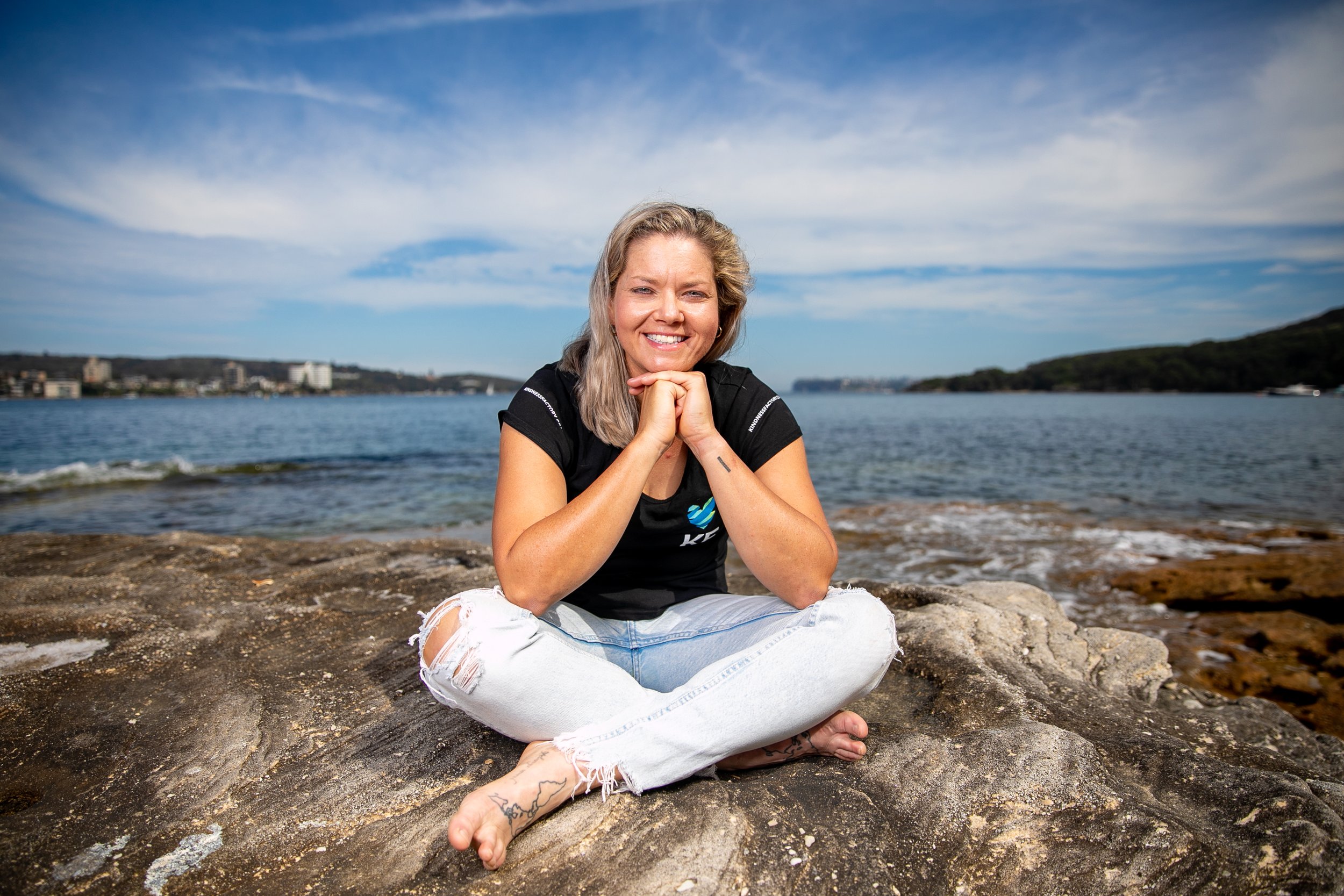5 Things we’ve Learned About Kindness from Kath Koschel
World Kindness Day is 13 November and we’re celebrating through the powerful example of our good mate, Kath Koschel.
From making an impact to strangers in the street to the Obamas and Dali Lama, Kath is changing the world one kind act at a time through her charity, The Kindness Factory.
What is now a global movement began with Kath’s own incredible tale of conquering adversity with resilience and gratitude.
We’re humbled that Kath is also a Gotcha4Life Ambassador who joins us to deliver presentations where she drives change by sharing her inspiring story.
On the Eve of World Kindness Day, here are 5 things we can all learn from Kath and the power of kindness.
1. NEVER GIVE UP
In just five years, Kath broke her back twice, was told she’d likely never walk again, faced having her left leg amputated, and lost the love of her life to suicide.
She was living her dream, playing cricket for NSW. Until two of her vertebrae cracked onto each other, partly ending up in her spinal cord. Chances were she’d lose her left leg. Chances were slim she’d ever walk again. She never gave up.
She fell in love with fellow spinal injury patient, Jim Punter. The couple was planning to move to the Gold Coast to start a new life together when Jim took his life.
Then, Kath broke her back again, in four places, after being hit by a drunk driver while riding her bicycle.
With persistence, multiple surgeries, and more months of full-time rehab than she’d like to count, Kath not only walked again - she’s gone on to compete in ironwoman events, riding 180km on a bike, swimming 4km, and running a full 42km marathon.
Kath built back more than her physical strength - she built emotional strength through gratitude.
2. KINDNESS BEGINS WITH GRATITUDE
Dealing with grief, trauma, and loss, a resilient Kath found strength in the thoughtful gestures that got her through her darkest moments, like when strangers pressed an elevator button she couldn’t reach from her wheelchair.
So, three years after Jim’s death, she started The Kindness Factory, a social media page to share her own acts of kindness. Smiling at someone in the street. Buying a homeless person dinner. Paying for someone’s petrol (that one went viral on the TV news).
Three months later and back in ICU after the bike accident, she couldn't do any kind acts - so her followers started doing them for her. Buying someone a coffee. Mowing a neighbour's lawn. Donating blood. They told Kath about it on the Kindness Factory page. It spurred more into action.
A personal crusade became a global one.
3. KINDNESS IS GOOD FOR YOU
The dictionary will tell you kindness is showing help, concern or generosity towards others without expecting praise or reward in return.
You might not expect anything in return, but you sure get something out of being kind.
Research shows kindness brings physical, mental health and emotional benefits that help people to be happy, confident, well-rounded individuals. Kindness boosts the immune system. Where stress creates tension in the nervous system, kindness relaxes it. Where stress is linked to mental illness, kindness is protective.
Kindness gives you a ‘helper’s high’. When you are kind to someone, your brain’s pleasure and reward centres are activated, so you benefit from your good deed too from the release of feel good hormones. Other studies showed participants report feeling stronger and more energetic, calmer and less depressed, and with increased feelings of self-worth after helping others.
4. KINDNESS IS CONTAGIOUS
Kind acts lead to more kind acts. Once kindness is felt, its power is understood, and it is more likely to be reproduced.
It’s why millions of people from around the world have logged almost 4.3 million acts of kindness on the Kindness Factory website.
Feedback from many of them shows doing an act of kindness fundamentally changes their mindset from the moment they engage in the act and when they take the time to record it.
The Kindness Factory platform is providing a safe space for people to share in kindness and give themselves and their wellbeing a boost at the same time.
Kindness drives sustainable change. It’s why Kath’s Kindness Curriculum is now in schools across Australia, delivering practical, positive mental health and kindness strategies to build resilience and happiness in the next generation.
“Where stress creates tension in the nervous system, kindness relaxes it. Where stress is linked to mental illness, kindness is protective.”
5. KINDNESS CAN CHANGE THE WORLD
What started as Kath’s own story of courage, hope, and adversity has become a global kindness movement, touching the lives of people from all walks of life.
“Kindness is more important now than it has ever been before. Our mission as an organization is to make the world a kinder place,” Kath says.
The Kindness Factory aims to inspire everyone to play kind, have fun, stay connected, know when to reach out for help, exercise resilience and treat themselves and the planet with dignity and respect. That echoes Gotcha4Life’s approach to building mental fitness too.
The Kindness Factory’s new campaign promoting random acts of kindness via a series of ‘Public Kindness Announcements’ features thought-provoking messages encouraging people to be kind and attentive to the people around them.
‘Don’t leave your mum on reading’.
’Less Trolling, More Kinding.’
The goal is to generate one million more acts of kindness this month to help make the world a kinder place.
That’s something we can all support.
Instead of leaving you with some words from Kath, we’ll leave you with some words from one of Kath’s T-shirts.
“What’s the kindest thing you’ve done today?”.



